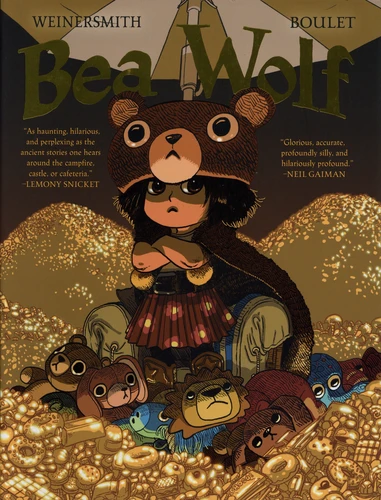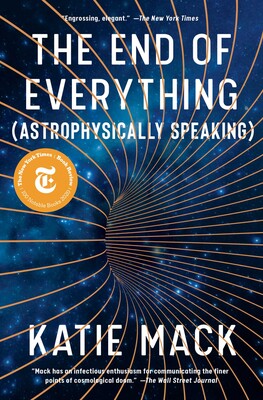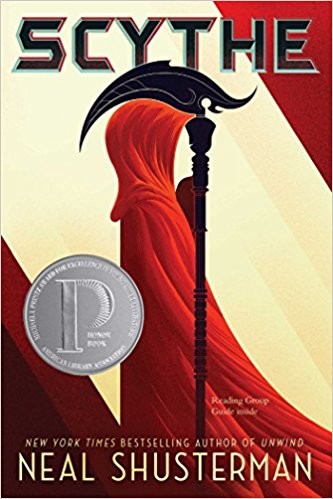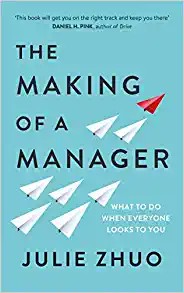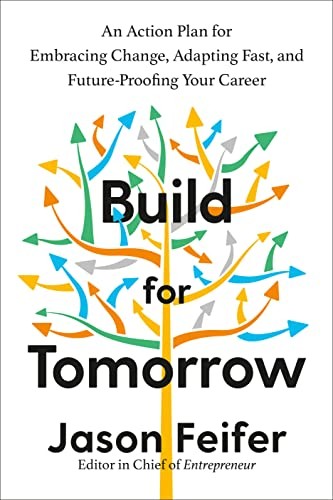In her acknowledgements, Jemisin says she finished this book out of "sheer bloody minded stubbornness", and it shows. The book feels more like a rant, with simplistic politics and a black and white view of the world, lacking any shred of nuance (all white straight people are racists, all cops are evil, all immigrants are kind hearted). It's tiring, and a couples of times I was ready to DNF this book. Sorry I didn't. This book was better left unwritten, even if it meant leaving the first book hanging off a cliffhanger.
Reviews and Comments
Canadian; love horror, sci-fi, historical fiction, urban magic, and science non-fiction
This link opens in a pop-up window
Dubi reviewed Bridge by Lauren Beukes
Dubi reviewed Barbara Isn't Dying Yet by Tim Mohr
Dubi reviewed The Complete Maus by Art Spiegelman
Dubi reviewed The World We Make by N. K. Jemisin (The Great Cities, #2)
A simplistic narrative that maybe was better off not written
2 stars
In her acknowledgements, Jemisin says she finished this book out of "sheer bloody minded stubbornness", and it shows. The book feels more like a rant, with simplistic politics and a black and white view of the world, lacking any shred of nuance (all white straight people are racists, all cops are evil, all immigrants are kind hearted). It's tiring, and a couples of times I was ready to DNF this book. Sorry I didn't. This book was better left unwritten, even if it meant leaving the first book hanging off a cliffhanger.
Dubi reviewed Bea Wolf by Zach Weinersmith
A gorgeous, grin-giving, thought-growing gift
5 stars
A brilliant retelling of (a part of) Beowolf, ostensibly for kids but really wonderful for anyone, with beautiful illustrations and the always wonderful wit of Zach Wienersmith. Loved every single page of this.
A brilliant retelling of (a part of) Beowolf, ostensibly for kids but really wonderful for anyone, with beautiful illustrations and the always wonderful wit of Zach Wienersmith. Loved every single page of this.
Dubi reviewed End of Everything by Katie Mack
A much needed addition to the management guidebook literature
5 stars
Management books are a dime a dozen, but most all of them are from managers in the private sectors (or, worse, consultants), and generally from the tech industry. This makes a lot of the advice offered there practically nonsensical for people in the public service. This is not because the public service is somehow lesser than the private sector -- in many ways, it is because it is so much more. It is also not because you can't fire people in the public sector (if your main management tool is the sword of firing someone, you're probably a crappy manager). The public sector does not work towards one, simple bottom line. Its purposes are diverse and often not very well defined, by their very nature. It is often reliant on partnerships rather than managerial authority to deliver even core services. And it is democratically accountable through highly visible and potentially …
Management books are a dime a dozen, but most all of them are from managers in the private sectors (or, worse, consultants), and generally from the tech industry. This makes a lot of the advice offered there practically nonsensical for people in the public service. This is not because the public service is somehow lesser than the private sector -- in many ways, it is because it is so much more. It is also not because you can't fire people in the public sector (if your main management tool is the sword of firing someone, you're probably a crappy manager). The public sector does not work towards one, simple bottom line. Its purposes are diverse and often not very well defined, by their very nature. It is often reliant on partnerships rather than managerial authority to deliver even core services. And it is democratically accountable through highly visible and potentially vulnerable politicians. These mean a lot of the management advice ("have just three goals!" "do 1-on-1s weekly!" and "embrace failure!", to name a few) is just not relevant for the public sector. This book tries to address these differences head on, and for that alone deserves five stars and a place on the shelf of any public sector manager. It does have a few weaknesses, nevertheless: with few exceptions, it's focused on the British experience, which means some cultural translation might be necessary on some of the finer details. It also focuses on the very highest echelons of managers. Here, I feel, it is inferior to many of the private sector management books that are deliberately geared towards new managers -- those who are, after all, more likely to seek out and need this kind of advice. If I already made it to the position of deputy minister or chief of police, I probably don't need this kind of advice, and if I do, it's probably too late for me. Seeking out advice that would help lower- and mid-level public sector management would've made this book even more useful. Nevertheless, a keen young manager can still glean a lot of helpful nuggets from this fairly easy and enjoyable read.
Dubi reviewed Scythe by Neal Shusterman (Arc of a Scythe, #1)
Dubi reviewed Making of a Manager by Julie Zhuo
Dubi rated My Life As A White Trash Zombie: 4 stars
Dubi reviewed Build for Tomorrow by Jason Feifer
A practical guide to facing and adapting to change
5 stars
I first encountered Jason Feifer through his podcast, The Pessimist Archives. Each episode discussed a beloved and respectable aspect of our lives, and described how and why people thought it would destroy human society when it was originally introduced - how bicycle were said to give you "Bicycle Face" and endanger your health, how teddy bears were sure to eliminate motherhood, how recorded music would result in children growing up to be mere vacant automatons, and my personal favourite - the danger posed to the very fabric of our society from the awful, widespread addiction of children to READING NOVELS. The podcast was a beautiful rejection of the "kids these days" narrative, steeped in evidence and humour. But at some point, Feifer, Editor in Chief of Entrepreneur Magazine, realized the podcast could be more that just an archive of yesteryear's pessimists. Asking himself "what is this for?", he renamed the …
I first encountered Jason Feifer through his podcast, The Pessimist Archives. Each episode discussed a beloved and respectable aspect of our lives, and described how and why people thought it would destroy human society when it was originally introduced - how bicycle were said to give you "Bicycle Face" and endanger your health, how teddy bears were sure to eliminate motherhood, how recorded music would result in children growing up to be mere vacant automatons, and my personal favourite - the danger posed to the very fabric of our society from the awful, widespread addiction of children to READING NOVELS. The podcast was a beautiful rejection of the "kids these days" narrative, steeped in evidence and humour. But at some point, Feifer, Editor in Chief of Entrepreneur Magazine, realized the podcast could be more that just an archive of yesteryear's pessimists. Asking himself "what is this for?", he renamed the podcast "Build for Tomorrow", and shifted its mission from merely refuting "kids these days" to using these examples to help people engage with change in a more productive manner. If you've listened to the podcast, you'll be familiar with many of the examples and themes presented in the book, but this books goes beyond merely rehashing the podcast, and offers a comprehensive framework to think about how we react to change. It identifies the pits we may fall into and the aspects of our natural reaction that we should embrace. It also provides tools for the reader to stop and think about their own life and career, and how they can make the most out of the change that will, inevitably, be part of them. I like that it's not written as a "how to" - there is no paint-by-numbers guide of how to successfully navigate change. Different tools may be more relevant in different contexts. But at the core, Feifer asks us to be aware of the four stages of reacting to change, which also form the structure of the book: Panic, Adaptation, New Normal, and Wouldn't Go Back. Feifer doesn't claim all change is inherently good - one example he gives is how the horrors of the bubonic plague resulted in a completely different balance of power between property owners and labourers, which gave the latter a lot more power to improve their lives so that they "wouldn't go back" to life before the plague. But getting there, of course, required the decimation of the population in a manner that left a lot fewer labourers for property owners to fight over. The "panic" stage of this change was certainly very warranted. Yet we could draw parallels to the impact of COVID-19 on office work practices, which are still being negotiated, or to the common (though hardly unprecedented) complaint that "young people don't want to work anymore". The point, however, is that change will happen. It may be good, it may be bad, or it may be neutral in its direct impact on our lives, but it's up to us to make the most of what opportunities it does present, and it does nobody any good to get stuck in panic mode.
One of the things Feifer says makes us tend to get into panic mode is that we tend to remember the good things about the past, and diminish the bad thing. We tend to be nostalgic. This may explain why I felt like many of the suggestions Feifer gives seemed obvious to me: I have a terrible memory, but when I do remember things, I tend to remember the bad things about them. So I'm perpetually in this state of "this is the best I've ever been!", and change is something I willingly seek out. I don't freak out when things change around me. I tend to just go with them -- I'm no trailblazing entrepreneur, but I am an early adopter and a quick adapter. But I see people struggling with change around me all the time. And one of the things I find most valuable about this book is that it also suggests ways we can help others along the way to change, by building what Feifer calls "bridges of familiarity". As such this book is great not only for those who are facing change, but also those trying to push for change in their organizations, and face the need to engage in "change management".
The one issue I had with the book arose early on. Feifer, like too many journalists writing about entrepreneurs, has a somewhat breathless way of describing all the wonderful things the entrepreneurs they are talking about do. Sure, they face challenges, but these challenges are presented as exogenous, while the entrepreneurs actions are just brilliant. But we can say this format is simply there to serve the narrative - life is messy, but our message needs to be clear. Fine. But Feifer seems to feel the need to also describe the businesses themselves as a boon to the world, no matter what. Nowhere else is this clearer than when he speaks of Taboola - that cesspool of clickbait links that pounce on you at the bottom of articles (or sometimes in the middle, with a "keep reading" button you must hunt for once you realize the story ended abruptly mid-sentence). Taboola is not a "Good Thing". It doesn't actually provide a service to the reader. It's an income stream for the websites, sure, but it does that by making us all a little dumber. And yet, Feifer feels compelled to extol the virtues of these links!
"At the bottom of many news websites, you’ll find links to articles with pointed headlines that you cannot ignore like, “15 Foods You Should Never Eat After Age 30,” which might leave you to wonder, Am I eating those foods?! This is an advertisement that Taboola calls “content discovery.” When you click, you’re taken to another site to read the story."
This description is completely unnecessary. It doesn't serve the narrative, it doesn't serve the message. It is also very demonstrably wrong. All it did was make me very suspicious of every other time Feifer said something positive about anything. Is this really a good thing, or is Feifer just a starry-eyed stan of this entrepreneur, again? I cannot emphasize how much this marred my experience with this book.
But still, I'm giving it five-stars, because I think this flaw doesn't detract for the actual benefits of this book. If there is or soon will be change in your life -- and yes, there definitely is -- this book could hell you get through it and emerge better and stronger on the other side.
Dubi reviewed The Committed by Viet Thanh Nguyen
Dubi rated The Committed: 5 stars

The Committed by Viet Thanh Nguyen
The long-awaited new novel from one of America’s most highly regarded contemporary writers, The Committed follows the Sympathizer as he …






